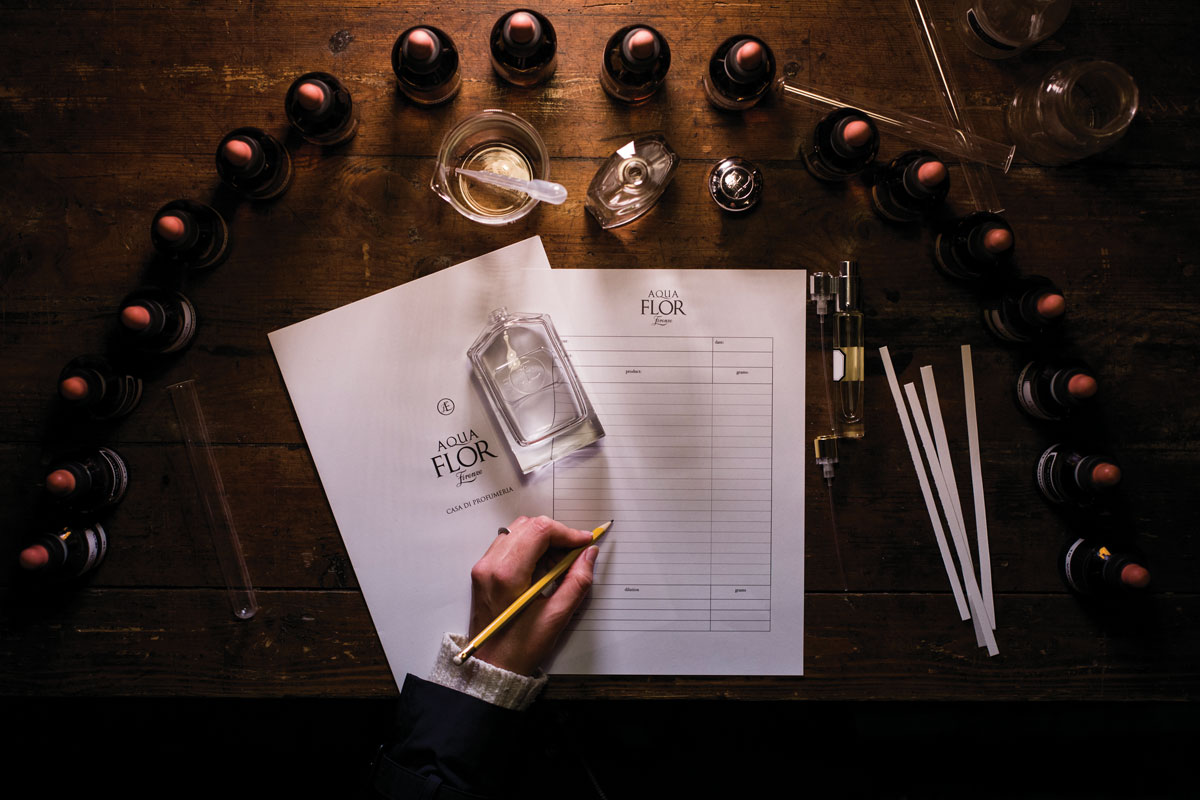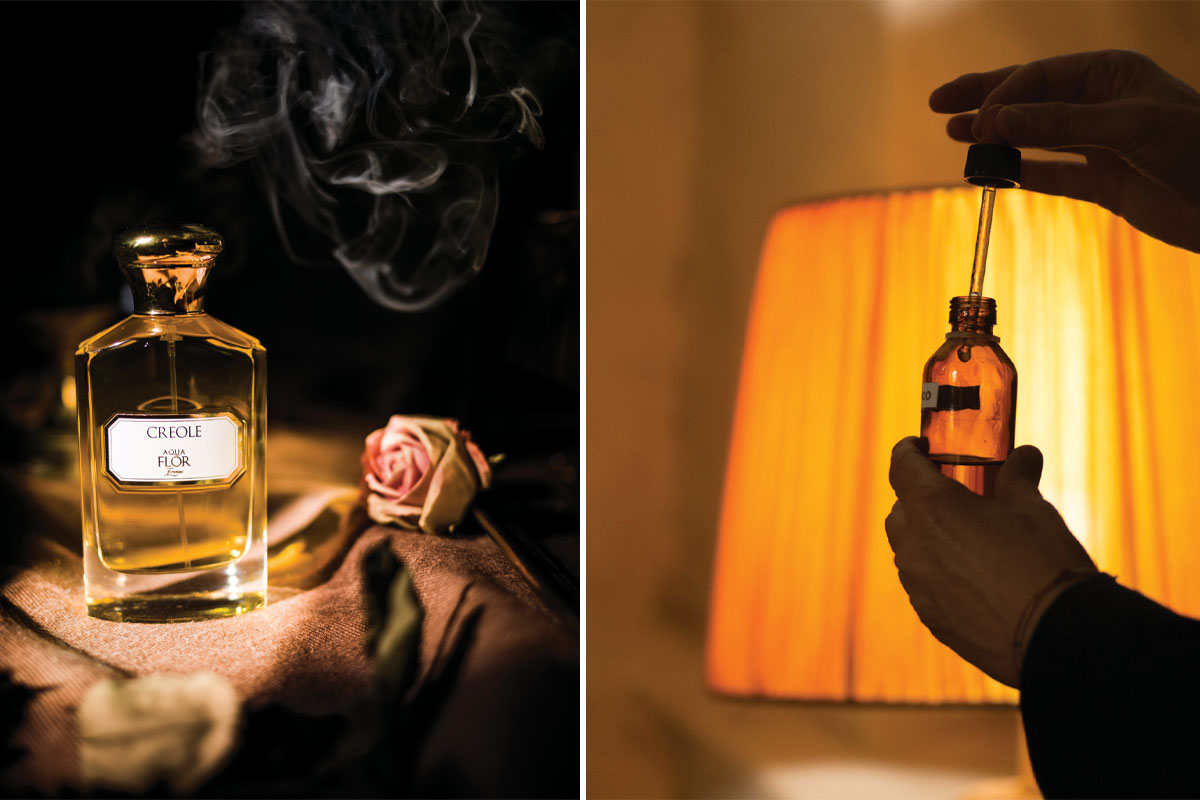Tucked away among the streets of Santa Croce, in Florence, is a palazzo entrance that leads to a hall with rows of glittering glass bottles: this is how guests first experience Aquaflor Firenze, a traditional Florentine perfumery founded by Mauro Arena. In today’s world, where most perfumeries are commercialized to meet market demands, Aquaflor Firenze remains traditional and true to the spirit of the Renaissance, a time in which craftsmen strove to perfect their art.
But being true to tradition comes with a cost.
“Rare and delicate essence may not always be available, and that makes stable production impossible,” Arena says. “You either remain small, or succumb to the global market and its insatiable appetites. We chose to remain small.”

Aquaflor Firenze’s nose
Aquaflor Firenze’s head perfumer, Nicola Bianchi, is the perfect artisan to carry out the company vision. Long before his internship with the International Flavors & Fragrances (IFF) in France, Bianchi was mentored by his father and family, who for generations were masters in the world of essences.
As a child, Bianchi experimented with essential oils in the family’s laboratory. A fond memory of his, Bianchi recalls, was his first encounter with rose and incense at the age of six.
His family’s “olfactory library” included the most exclusive natural and the most innovative aroma chemicals in the field of fine fragrances. With access to these rare, raw materials from all over the world, Bianchi began to memorize the nuances of the ingredients. This early training, in combination with his passion for the craft of perfumery, developed him as an artisan.
“The art of perfumery is a combination of practice, technical knowledge, and creativity—three elements that must be perfectly balanced,” he says. “You do not become perfumer if you do not have the practice and if you do not know the interactions between the materials. You are not an artist if you do not listen to and follow your inspiration.”

Beauty is balance
In addition to its signature formulas, Aquaflor Firenze offers clients the opportunity to make their own personalized, bespoke fragrances. To Bianchi, a curated perfume is a journey between memories and olfactory landscapes—a way to be “in touch with the most intimate spheres of each person’s personality and to affirm his own tastes in terms of fragrances,” he says.
“At Aquaflor Firenze, we want the customer to stop and smell the various fragrances, to live in an atmosphere where all the senses have their own space,” says Bianchi.
At the workshops provided by Aquaflor Firenze, guests can learn to discern a perfume’s different characteristics—for example, whether it holds woody or floral notes, or the olfactory family each perfume may belong to.

Another workshop allows guests to experiment with a smaller-sized organ (the collection of notes used to craft a perfume). As in life, the challenge and the reward is finding a balance that works with the individual.
“The work of the perfumer is the incessant search between accords and contrasting notes to make a fragrance that is harmonious and intriguing,” Bianchi says.
Perfume is a perfect vehicle to find that joyful harmony, since crafting a pleasing aroma is both an inward and outward journey.
“No one in Florence can escape the laws of beauty,” he says. “Being here, in a certain sense, means being able to creatively translate the tangible beauty of architecture and the figurative arts into the intangible that one must obtain in the creation of a perfume. They are different material categories, but they reflect the same principles. Harmony, contrast, colour, and form can be found in an architectural work or in a perfume.”
